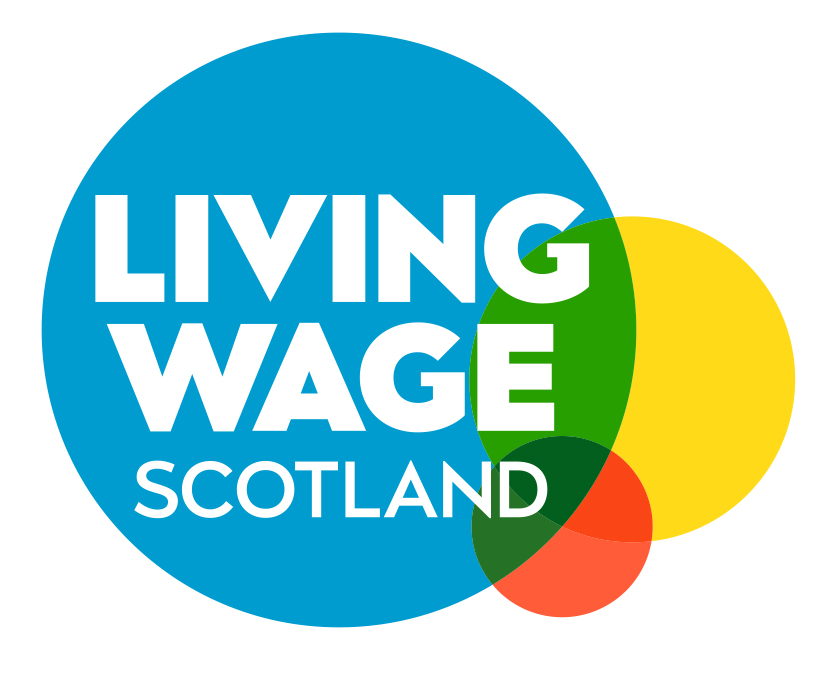SCVO are the Scottish Council for Voluntary Organisations and a Living Wage Employer. In this long-read, Chief Executive, Anna Fowlie responds to the Living Wage Foundation’s latest study of the Living Wage in the third sector, ‘All Work and Low Pay?’
The Living Wage Foundation’s report, All Work and Low Pay, confirms what my instincts tell me; voluntary organisations want to pay their staff at least the real Living Wage and to be good employers, but the system we work in puts up more barriers than enablers. The report also demonstrates that old adage – people work in charities, social enterprises and community organisations because they love what they do and are committed to the people and causes their organisations support. They’re not in it for the money.
But there comes a point when that starts to feel unreasonable, even exploitative, and we’re past that point now, particularly in the context of the cost-of-living crisis.
Some of the systemic issues raised in the report apply in all sectors – the gendered nature of low pay, clear racial inequalities, and geographical differences. Nearly fifty years on from the Equal Pay Act, after decades of equalities legislation and campaigning, women, people from racialised communities, and disabled people are still paid less than white men. People working in, or close to, capital cities – whether London or Edinburgh – are paid more than those in towns and rural areas.
But what is different in our sector? Why have so many of our workers not had pay rises for years? Why are they not on permanent contracts? Why are people still surprised that staff in the voluntary sector get paid at all?
The most obvious answer is the old chestnut of contracting, grants and project-based funding. SCVO and many others have been banging on about this for years. Whatever we might hear about procurement being a driver for improvement in fair work and sustainability, the evidence is that price still dominates and the race to the bottom continues. Public sector contracts have no inflationary uplift, are based on time and task, not quality, outcomes or relationships and there is little recognition of core costs like training, pensions or even rent. Providing services at a lower cost than in-house public sector organisations is seen as value for money rather than what it is – unreasonable expectations/exploitation.
Grant-making is no different in the main. It’s based on new, shiny things rather than sustaining existing work that effectively supports people and communities. Budgets are flatlined but with the same or even higher demand, taking no account of the rising costs of running an organisation.
And it’s not just the amount of money, it’s the nature of the funding. When organisations receive funding on an annual basis, the organisation and therefore its staff, face an ongoing existential threat. Organisations can’t offer permanent contracts and regularly need to issue redundancy notices. That means staff can’t get mortgages and live in perpetual insecurity. As the people quoted in this report express so eloquently, that impacts on morale, wellbeing and retention.
Some independent funders get it and are changing, but there’s a way to go. Public sector funders always pass the blame for annualised budgets up the chain, but their own staff don’t face the same uncertainty.
Interestingly, the report points to a lack of diversity in charity trustees as a contributory factor to low pay and insecure work. Trustees are ultimately responsible for pay policy and financial sustainability. We need trustees who reflect society as it is now, particularly people with lived experience of the issue their organisation is addressing.
A quarter of voluntary organisations rely entirely on public giving and trading. Research by the Charities Aid Foundation consistently finds that people in Scotland are generous with their money and their time, but it remains to be seen whether that will withstand the impact of the “cost of giving crisis” as Pro Bono Economics describe it.
While the report found that there is public support for people working in the sector to be properly rewarded, it also flags that there’s still a perception that if you work in the voluntary sector, you shouldn’t be paid at all. I’ve encountered this myself, even from people who should know better and who, looking through a different lens, would be outraged at the thought of someone working for nothing. Do we really think people doing vital medical research, providing social care, looking after our heritage, or supporting vulnerable young people should do it solely for the love of it? How would they pay their bills or feed their kids? Do we want to be back in the days of lady almoners in twin set and pearls looking after the poor?
The fact is that over 100,000 people in Scotland work in the sector and for frontline workers, and indeed volunteers, to do their jobs effectively, there needs to be some sort of infrastructure making sure the rent is paid, the accounts balance and – of course – funding bids are written.
The people and causes that voluntary organisations support need and deserve the best. That can only happen if voluntary organisations are able to offer properly paid, secure work. It’s not enough to say the right things or display the right logos – organisations, funders and commissioners, need to put their money where their mouth is.

